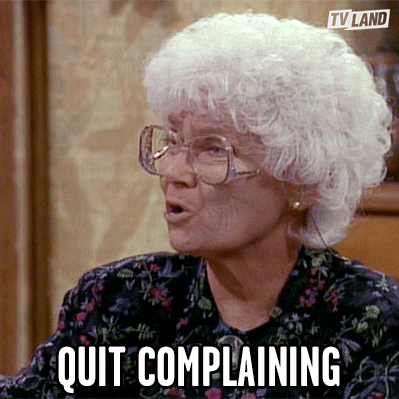One little nugget of gold I picked up when working for Spotify was:
Always assume positive intent
However, I’ve now realized that it’s a bit one-sided and it opens up an unexpected opportunity for building a bad culture. Also, it touches on one of the reasons I never wanted to be a manager.
Let me explain.
Always assume positive intent
Always assume positive intent as a general rule I think is good advice. I’ve seen many conversations that could have benefited from some “hey - maybe they don’t want to hurt me?” at the outset. Just taking a little effort to think that the question comes from someone with good intent, before jumping to conclusions about them wanting to do something bad to me - that’s how I understand “Always assume positive intent”
Interestingly enough, every time I talk to people that have had this saying floating around in their company they always shift uncomfortably in their chair and start to say that it can hinder you from ever addressing any bad things.
And sure you can read it as a declaration of never being sad. BE HAPPY. NOW! And stop complaining!

But that’s not how I’ve seen and used it. For me, it’s more of a try to assume positive intent where you can, it's good for the culture here.
My reflections
I have however started to think about the direction of the exhortation - it puts all responsibility of the receiver of the message. Regardless of what and how they say it - assume that they had positive intent.
A common way to express this is “misdirected good intentions”. It goes like this; someone asks a very rude question, or raises a problem in an aggressive, complaining kind of way:
So I guess no one has thought about that?Have we dropped the ball on X? Again?- And my personal anti-favorite
I don't want to play the devil's advocate here, but ...(see the end of the post for how to meet this)
I can then, as the receiver of that message “Always assume positive intent” and think Huh - that was rude and problem-focus, but if I squint my eyes really hard, and look past ... waaaay past what they said, there's some goodness to be dug up from the bottom of that barrel. I'm gonna focus on that and meet this with a positive intent
In fact, I have many times been told that as a leader this is what you have to put up with. We say things like:
- It’s windy at the top, you know
- This is why they pay managers more
- Being a manager is a shitty job, no one ever would want to do it if you don’t get paid more.
I don’t buy it. Not one bit. But I’ve heard it so many times that I’m starting to think that we foster a culture where a manager becomes this person. Hence I don’t want that job. I can be a leader, sure, but never formally; if this is part of the job.
Instead - I think that the sender also has a responsibility for the message being expressed. Sure, you can trust the receiver to assume positive intent but why make it as hard as possible?
And think about this - everyone else who heard you express your well-intended message in a … harder-to-interpret-than-needed way, how will they express their message the next time? It will affect us since interactions like this build our culture.
What to do then?
There’s a book in Swedish called Björnstad that has a great quote (hope I get it right):
Culture is not only what we encourage, but also what we accept.
Yesterday a friend said it like this Culture is worst thing we accept.
Hence, we need to address this. If we want the receiver of a message to Always assume positive intent I think it’s quite reasonable to also require the same of the sender of messages. There’s a whole book on this subject - The No Asshole Rule and anything you can read about how to give constructive feedback will help.
When someone, the receiver OR sender, seems to struggle to see the positive intention we could ask them why. Typically there are other things behind behavior like that - maybe they need help? Assuming a positive stance in that conversation is a good start, to be honest. And to not take that conversation publicly…
To sum up I cannot come up with a short, snappy saying like the original but if I were pressed to write something it would be
`Try to assume a positive intent; in both sending and receiving messages. It will help us build a better culture.
PS - the devil’s advocate
If someone (and I have been one of them) brings up the devil’s advocate argument you can tell them the fascinating story about how cardinals got selected to dig up dirt on people being suggested as saints in the Catholic church. That role is called the Devil’s Advocate.
And then just say that as the world looks today the devils don’t need any more advocates. He has plenty. The other side might need your services though…